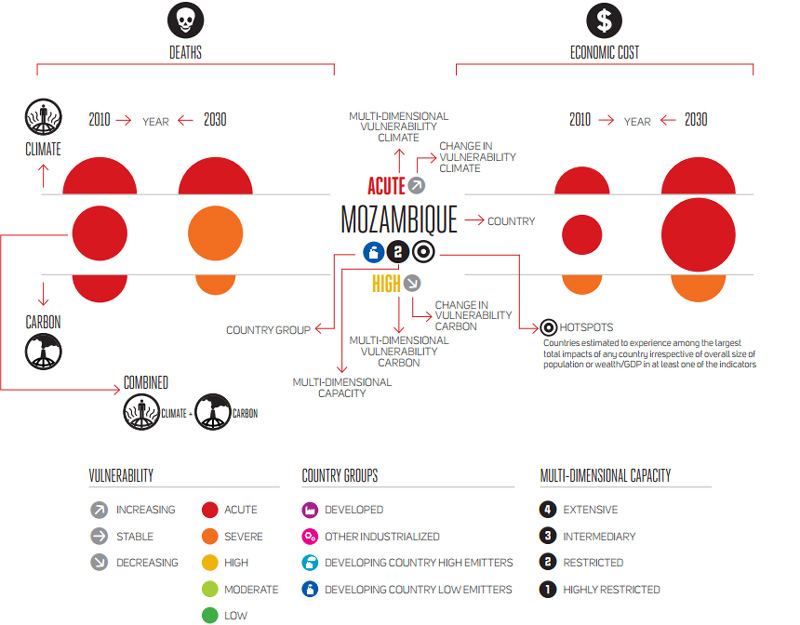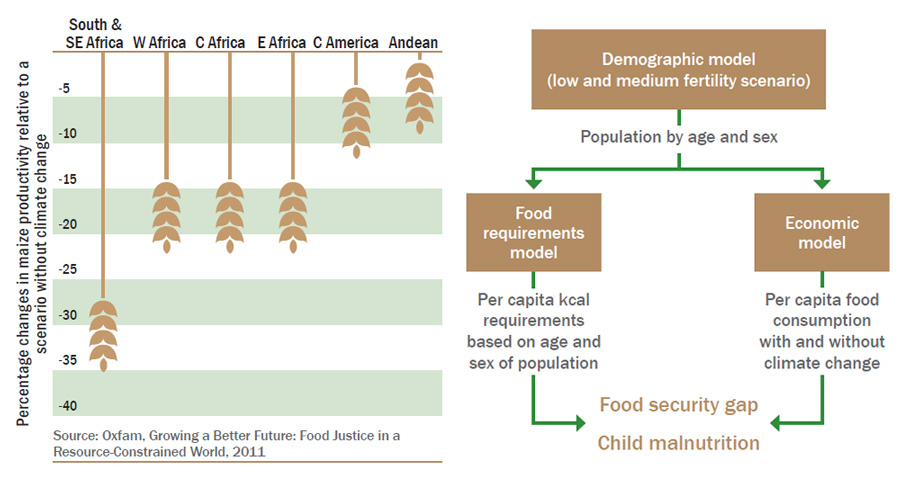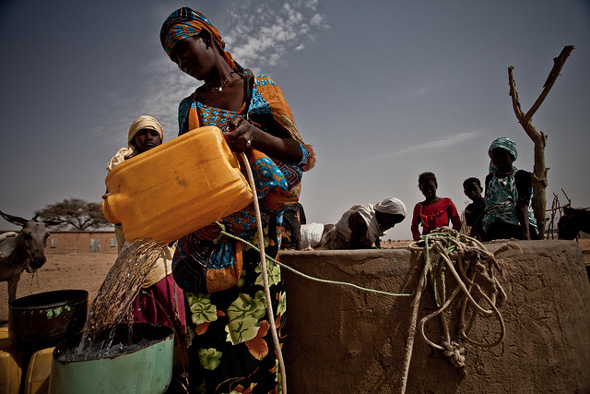-
Top 10 Posts for November 2012
›Population and environment stories nearly swept the top 10 last month (ranked by unique pageviews). Sean Peoples’ first short film on population, health, and environment projects in Tanzania led the charge, followed by a guest post from Tim Tear and Craig Leisher of The Nature Conservancy; Ken Weiss’ Beyond Seven Billion event; Elizabeth Leahy Madsen’s look at Yemen’s demography; Kathleen Mogelgaard’s post on next steps for incorporating population dynamics in climate change; and a summary of Joel Cohen’s 45-minute YouTube introduction to demography for the Floating University.
-
Does Climate Change Kill Five Million People A Year? DARA’s 2012 Climate Vulnerability Monitor
›Five million people die each year due to climate- or carbon-related causes, and total mortality by 2030 could total 100 million people, according to new report from DARA, a nonprofit organization that works to improve aid to those affected by conflict and climate change and quantify the global cost of climate change and carbon use. But the report has drawn some fire for being too alarmist.
-
Can Family Planning Save Millions From Malnutrition in a Warming World?
›As the effects of climate change become increasingly apparent, existing poverty and human security challenges are being compounded. Among them, food security is one of the most pressing, especially in the developing world.
Based on a model developed by researchers at Futures Group, a pilot project in Ethiopia reveals that a lower fertility track for some countries could help compensate for the negative effects of climate change on agricultural yields. The study, conducted by MEASURE Evaluation and funded by USAID and The David and Lucile Packard Foundation, suggests incorporating family planning into existing climate change adaptation strategies.
-
Top 10 Posts for October 2012
›Water – and its relationship with development, food, demography, and conflict – dominated October’s top 10 posts. Jeremiah Asaka’s guest contribution on resource conflict in Kenya and Kate Diamond’s look at SAB Miller’s surprisingly on-point summary of the water-energy-food nexus were new additions. Carolyn Lamere’s posts on the health of the world’s major aquifers and the political situation along the Nile basin made reappearances. And the drought across the U.S. West is still on, driving interest in Graham Norwood’s summary of how it might impact world food prices and its connection to climate change.
-
From Dirty Wells to Endocrine Disrupters: Covering Women, Water, and Health at SEJ 2012
›Access to safe water is often taken for granted in developed countries. But last week at the 22nd annual conference of the Society of Environmental Journalists, panelists argued that the impact of dirty water on women’s health is an important but neglected story, not only in developing countries like Nigeria, but also in the United States.
-
International Day of the Girl Child: Recognizing the Unique and Complex Vulnerability of Young Girls
›October 11, 2012 // By Schuyler NullToday is the first “International Day of the Girl Child” – a day established last year by the United Nations to acknowledge the rights and unique challenges faced by young girls around the world.
The latest UN projections put the number of women under the age of 19 at about 1.18 billion today. Especially in developing countries (though not only) these young girls often face outsized barriers to happy, healthy, and productive lives.
-
Top 10 Posts for September 2012
›September brought a crop of fresh faces to the top 10 (based on unique pageviews). Valerie Hudson’s spring launch at the Wilson Center of her new book Sex and World Peace, which asks if the domestic treatment of women impacts the security of states, was very popular, and Carolyn Lamere’s snapshot of the current political and development situation along the Nile river basin also jumped the charts.
-
Top 10 Posts for August 2012
›August is a slow month in DC, but not so on New Security Beat: 8 of the top 10 last month (measured by unique pageviews) were new posts. Laurie Mazur’s discussion of inequality, population, and sustainability took the top spot followed by a look at what’s new in the Population Reference Bureau’s latest data sheet; Kate Diamond’s feature on Mongolia’s climate and development challenges; a discussion on the naming of the Failed States Index; a summary of the National Intelligence Council’s extensive series on aging; and two reactions to Iran’s surprising shift on family planning.
Showing posts by Schuyler Null.







